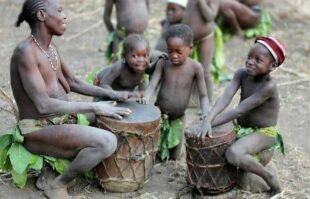Over the years, there have been controversies as to whether or not Ilorin people are a part of the Yorubas or if they belong to the Hausa tribe. But one prominent fact is that their cultural heritage and social structure today are reliant on the premise that they shared parts with the two tribes. These parts range from the cultural beliefs of the Ilorin people carved from the Yorubas and the Hausa, and they have their origin in the two parties.
However, history has it that Ilorin was founded by the Yorubas and existed until the Hausas, known as the Northern Protectorates, took control of the area and spread Islam to the Ilorin people. From the 18th century through the 19th century, the Yorubas were in control of Ilorin, until the advent of the British colonial masters made the area a centre for engaging the Northern people during the indirect rule system.
The capital of Kwara State and the biggest city in the middle belt of Nigeria’s north-central geopolitical zone is Ilorin. According to research, the word “Okuta Ilorin,” which translates to “a stone used for honing metal,” is the source of the name Ilorin. Thus, Ojo Isekuse, the man credited with creating Ilorin, sharpened his metal utensils on this stone.
Furthermore, Ajikobi, Warrah Osin, Alannamu, Magaji Ngeri, Oloje, Pakata, Idi-Ape, and Oke-Lele are a few of the larger towns there.
Thus, in this piece, Naijabiography explores the origin of the Ilorin people, including their culture, social structure, economy, and the modern-day Ilorin.
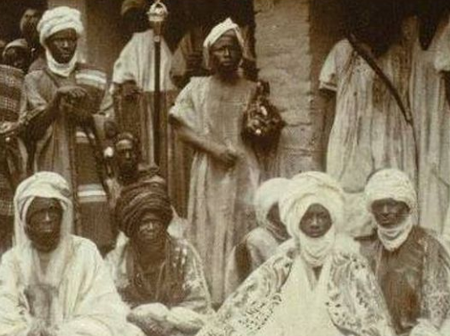
History
Ilorin, one of the largest cities (capital city) of Kwara State, was founded in the early 18th century by the Yoruba, which is one of the three major ethnic groups in Nigeria. In 1450, the word “Okuta Ilorin,” which translates to “a stone used for honing metal,” was created by Ojo Isekuse, the man who claimed to be the first to settle in Ilorin.
This stone, however, was used by Ojo, the founding father of Ilorin, to make his metal utensils on this stone, and it can be found at Asaju’s compound in Idi-Ape Quarters. History also has it that Ojo Isekuse didn’t just settle in Ilorin, but he attracted other groups of people who also came down to Ilorin to settle down.
At the time of its creation in the 18th century, Ilorin was dominated by the Yoruba people, and it became the capital of a kingdom that was a vassal state of the Oyo empire. Later, the Oyo’s commander at Ilorin, known as the Aare-Ona-kakanfo, who was named Afonja (field marshal), led a rebellion in 1817 that was said to have destroyed the unity of the empire. However, he received assistance from the Hausa slaves, Mallam Alimi (a Fulani from Sokoto), Fulani soldiers, and Fulani slaves.
Thus, after Alimi’s murder, his son Abd al-Salam (Abdul Salami) took over as emir of Ilorin in 1829 and swore allegiance to the Sokoto caliphate. Afonja was becoming more and more dominated by the Muslim Fulani.
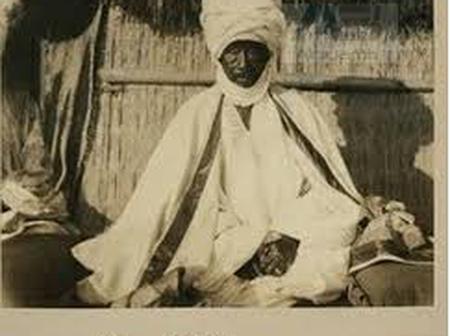
Ilorin, a Muslim emirate, conquered numerous Yoruba cities and destroyed Oyo Ile (Old Oyo, or Katunga), the Oyo kingdom’s capital, in 1837. History has it that it was located 64 kilometres (40 miles) to the northwest. Abd al-Salam launched a crusade against the sea, and it wasn’t until Ibadan defeated his cavalrymen at Oshogbo in 1840 that he was forced to retreat.
Shehu Usman Dan Fodio’s descendant, Shehu Alimi, later overthrew the Oyo Empire dynasty. In Ilorin, Shehu Alimi waged a jihad against and wiped out the inhabitants of the Oyo Empire. Ilorin thereafter became a Northern Nigerian Protectorate.
Ilorin served as a significant hub for trade between the Hausa of the north and the Yoruba of the south throughout the 19th century. It opposed the British administration vehemently, and it wasn’t until 1897, when the Royal Niger Company’s soldiers arrived after capturing Bida (106 miles to the east-northeast), that Ilorin came to accept British dominance.
Meanwhile, Islam had already been spread at this time throughout Ilorin by Shehu Alimi when he took control of the area, and because of the Northern incursion, Ilorin has a significant Islamic influence that can be seen in the way people greet one another and other practices that are firmly based on Islamic principles.
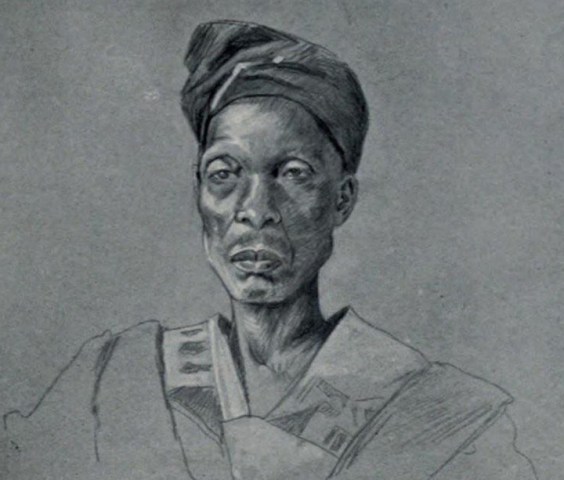
The Northern Nigeria Protectorate, which subsequently during the colonial period evolved into the Northern Province and then the Northern Region, only comprised the Ilorin emirate as part of Yorubaland in 1900. Although the emirate continued to serve ceremonial purposes, the capital was taken over by the Royal Niger Company in 1897, and its territory was added to the British province of Northern Nigeria in 1900.
Thus, when Nigeria’s administrative regions were divided in 1967, Ilorin was included in West Central State (which eventually became Kwara). As a result of the consistent migration of people in the area, Ilorin is now dominated by both the Yorubas and Hausas, with Yoruba as the predominant language and Hausa as the second most popular language.
Economy
A sizable portion of Ilorin is rich agricultural terrain. Kwara State is rich in primary resources thanks to the limestone and dolomite of Oreke, the kaolin and clay of Idofian near Ilorin and other areas of the state; the pure gold of Kaiama and the Patigi region, and the very exportable tantalite deposit of Iporin.
Ilorin has a major market for livestock, hides, and poultry as well as for locally grown products such as yams, cassava (manioc), corn (maize), sorghum, millet, rice, peppers, and peanuts. Pottery manufacturing, wood carving, leather working, textile weaving, and mat and basket weaving are examples of local handicrafts.
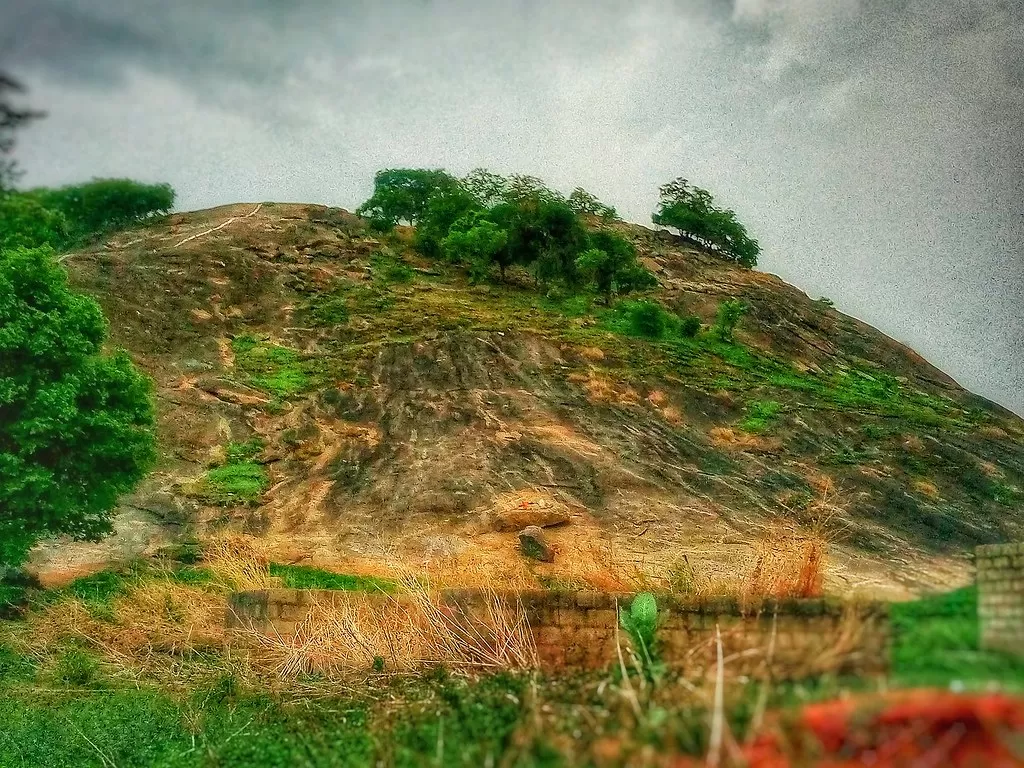
Initial notable industrial enterprises in Kwara State included the International Tobacco Company, Detergent Industries Nigeria Limited, and Global Soap (no longer in existence). The state has made an effort to attract industrialists with successive administrations. The growing industrial sector now includes sugar refining, food processing, soft-drink bottling, match and soap manufacturing, and ironworking.
Furthermore, Ilorin has emerged as Nigeria’s centre for cashew processing, and Olam International has built the largest cashew processing facility in Africa. Every day, the plant processes 100 MT of cashews and employs more than 2000 people.
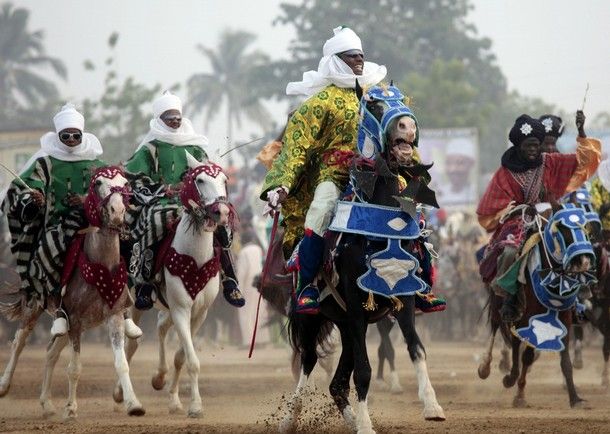
The Culture of the Ilorin People
The majority of the population’s attire reflects the overwhelming influence of Islam as a religion in Ilorin. The men cover their heads with a turban and wear jalabia. The majority of the ladies dress in long gowns and cover their heads with scarves or a hijab. Their attire presents them as moral and religious individuals.
Ilorin, also known as Ilu Alufa (the Town of Islamic Scholars), has a vibrant Islamic culture that has assimilated with the local culture. This may be seen in the Arabic and Yoruba that are combined in the traditional folklore and traditional music of Waka. A significant part of conveying the history of Ilorin, which also incorporates philosophical messages and moral beliefs, is done through folklore and Waka music.
In Ilorin, there are several joyful events held throughout the year, including the “Yawo Dancers Festival.” Even though they are traditional celebrations, the majority of the festivals held there has a religious bent. With a predominantly Muslim population, these festivals are observed in accordance with Islamic teachings and ideals. Islamic holidays are therefore more widely observed there with great pomp and circumstance.
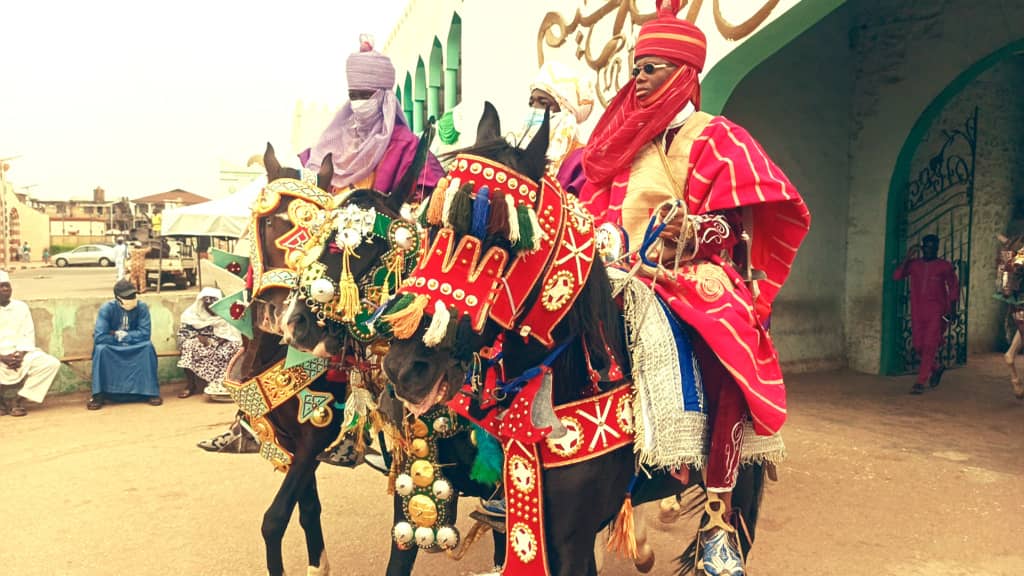
Since art does not conform to Islamic principles, it is uncommon to find it in the Islamic state of Ilorin. Islam holds the view that having artwork in one’s home or on display in public spaces draws evil spirits. On the other hand, Ilorin has developed crafts to support the local economy and food production. Blacksmithing, where metals are utilized to carve cutlasses, hoes, arrows, and other tools, is a type of craft practised in Ilorin. Also, pottery is part of the cultural trade that the Ilorin people indulge in.
Religion
The Yoruba, Fulani, Nupe, Bariba, Kanuri, Igbo, and Hausa ethnic groups from all across Nigeria, as well as foreigners and locals, live in the city, which is a melting pot of cultures. Large Muslim and Christian populations coexist in the capital city of Ilorin, and numerous ceremonial events, many of which have religious overtones, are held there all year long.
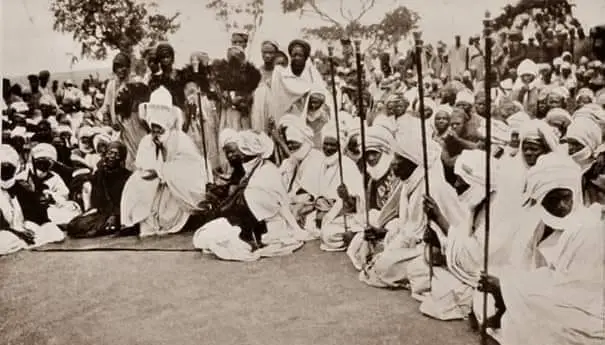
Ilorin is home to a variety of religious practices and educational institutions, including the United Missionary Theological College, which awards degrees and is affiliated with the Universities of Ibadan and Ilorin. This institution produces many church ministers, teachers, and theologians of all denominations and is known as the “Home of Peace” due to its friendly environment. Muslims are educated in a variety of Islamic, Arabic, and social science fields at the College of Arabic and Islamic Legal Studies in the Adeta region.
Ilorin Foods
The dish known as amala, which is taken with gbegiri and ewedu, is a favourite among Ilorin residents. Also, the populace enjoys drinking fresh cow’s milk.
In Ilorin, the milk is also utilized to create a delicious treat known as Wara. Wara is produced by heating or evaporating cow’s milk. This can be consumed on its own as a snack or prepared into a soup and used in place of beef or fish.
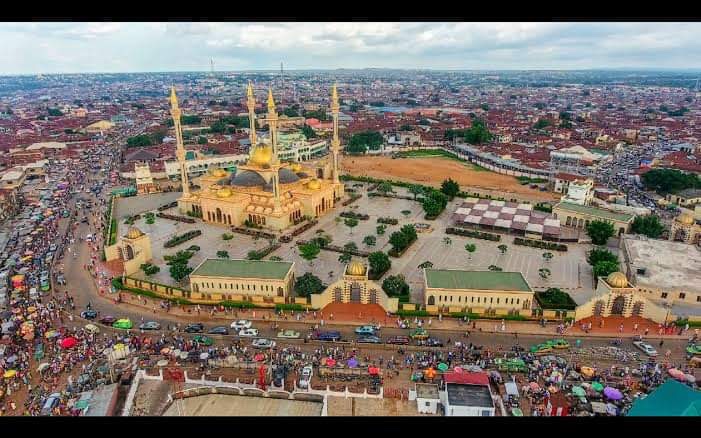
Modern-Day Ilorin
The city is home to a number of tourist sites, including Sobi Hill, which is claimed to have provided people with protection during old intertribal conflicts. The Okuta Ilorin, is located in Asaju’s complex, Idi-Ape Quarters. It is the rock that Ojo Isekuse, one of the city’s founders, used to hone his metal implements.
The Kwara State Council for Arts and Culture, its performance group, and a gallery containing artworks and artefacts are all housed in the cultural centre. There are also mementoes of historical and cultural significance. In addition, on Unity Road, there is a recreational area called Metropolitan Park. The Kwara State Stadium Complex contains a diving platform and an Olympic-sized pool.
Furthermore, the University of Ilorin and Kwara State Polytechnic are located in the city. In close proximity to the city is the Federal Agricultural and Rural Management Training Institute, which runs a research farm. Ilorin is also served by teacher-training institutions and a vocational trade school. A nursing home for the aged, as well as other government, private, and religious hospitals, are included in the health services.
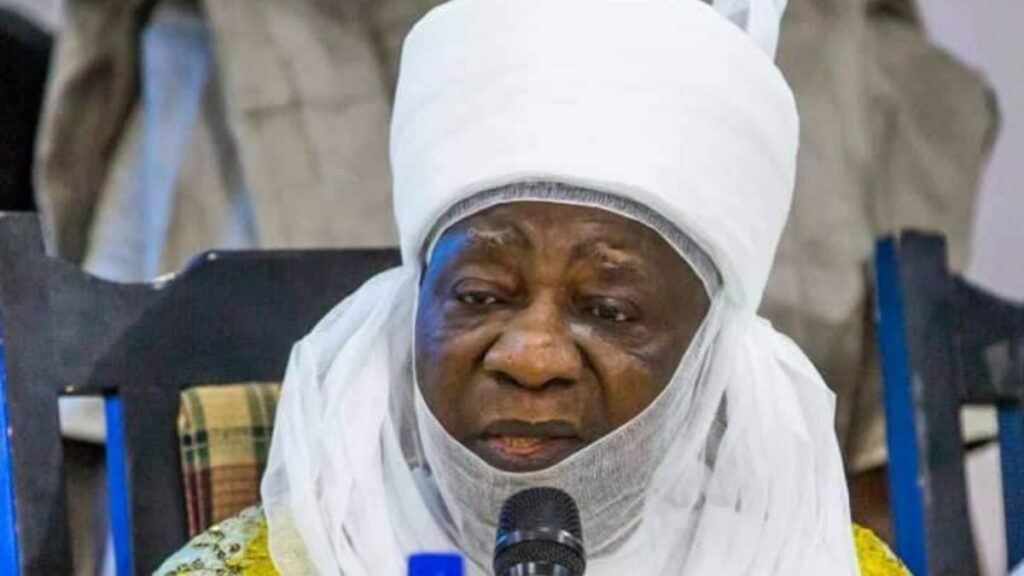
Ilorin is home to two professional football teams: Kwara United F.C., which competes in the Nigeria Professional Football League (N.P.F.L), the top flight, which is controlled by the League Management Company, and ABS F.C., which competes in the Bet9ja Nigeria National League, the second division.
The city is also home to West Africa’s sole regulation baseball field. As well, it has played and hosted various national handball tournaments since it became a centre for civilization.



